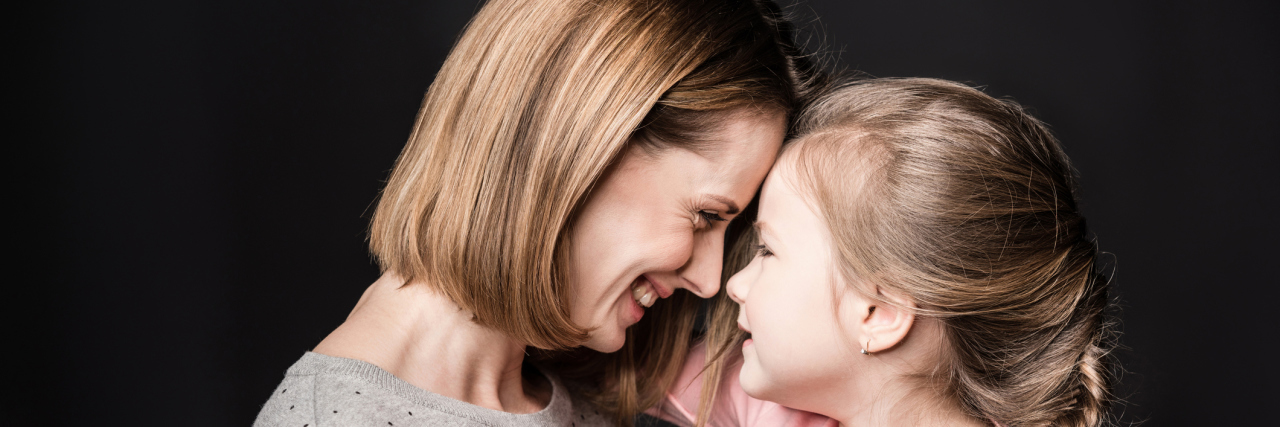Why It's Important My Autistic Daughter Learns Appropriate Social Behaviors
I have the most adorable problem in the world. My daughter, Hope, is extremely cute, giggly and will come at you with arms outstretched and a huge smile on her face. She’ll reach up, grab you by the neck and pull you down into a hug, often with her forehead pressed to yours. She’ll look you in the eye with such a deep look of love, and you will probably hug her back. Hope is, quite frankly, irresistible.
The problem is, Hope doesn’t discriminate between people who are appropriate to hug, and those who aren’t. She will grab anyone who looks like they might be available for a hug, whether she knows them or not. Perhaps you’re seeing my problem?
I really try to keep a close watch so that this doesn’t happen in public, but sometimes, she’s so quick that I can’t stop her before she’s gone in for the grab. Recently, I was busy filling out some paperwork for my son’s chemistry class and every time I tried to write, she grabbed a different mom.
As soon as I realized what she was doing, I would tell her, “Hope, no! Hands down, we don’t grab people by their heads!” And every time, without exception, the mom would say, “No, really, it’s OK, I don’t mind!”
And I get it, I really do. It’s startling to be literally overwhelmed by love, and they’re still processing what’s going on. They think I’m worried they’ll be upset (and that is part of it), and they want to assure me they’re alright. They realize Hope is developmentally disabled and don’t want to see her in trouble. They are, honestly, trying to make things easier for Hope and I, which is very nice.
But the problem is, Hope’s behavior isn’t appropriate or OK. She could put herself in terrible danger if she picked the wrong person to grab, or she could just really annoy someone who has their own sensory issues and doesn’t like to be touched. In no way is it ever socially appropriate to grab someone you don’t know by the head and pull them down into a long embrace, and she needs to know this.
And when I’m trying to correct her behavior, it’s because I love her and want to keep her safe so she can continue to be in public and with her peers. She needs to learn the difference between appropriate and inappropriate, and when someone immediately contradicts me and tells her that her behavior is OK, it makes my job much harder.
No one likes to see a cute kid in trouble, and it’s especially heart wrenching when you realize the child has a challenge that makes learning harder. It’s natural to want to reassure, excuse and forget about the transgression.
But these cute kids are quickly growing into not so cute adults who won’t be held to the same standards. Can you imagine if it wasn’t a cute little girl pulling a stranger into an embrace, but a 6 foot man doing the same thing to a toddler he passed in a store aisle? Or to a teenage girl? Not so cute at all.
So please, when you see a parent lovingly correcting a child with disabilities, resist the urge to tell them it’s OK or that the behavior didn’t matter. It does matter, because we’re desperately trying to teach our children how to function in society so they can have the most freedom possible. So that they can enjoy a walk in the park or a trip to an amusement park without causing an incident that might make it impossible to take them on such outings in the future.
It’s because we love our kids fiercely that we work, correct and practice social behavior. It’s why we’re able to look tough when those little faces are really melting us inside. Because we want them to have their best lives possible, and we want them to fly.
A version of this post first appeared on Best Made, Mislaid Plans.
We want to hear your story. Become a Mighty contributor here.
Thinkstock image by LightFieldStudios

